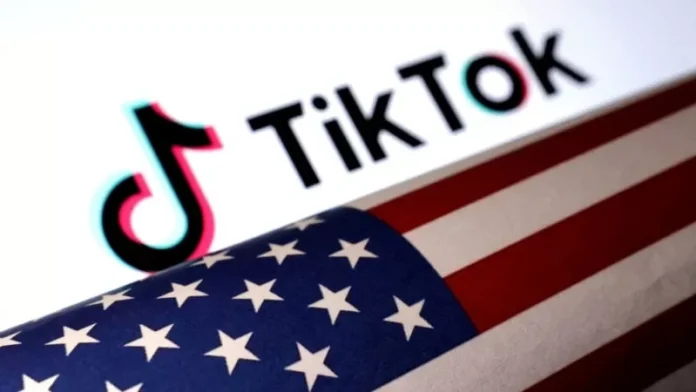TikTok has taken the world by storm, becoming one of the most popular social media platforms with millions of users worldwide. Every day, people from all walks of life are flocking to the app to showcase their talent, creativity, and humor. But with the U.S. government’s recent actions to ban the app, many are left scratching their heads, wondering what the fuss is all about.
If you take a quick look at some of the most popular videos on TikTok, you may be left in awe. There is Charli D’Amelio, the 16-year-old from Connecticut with nearly 156 million followers, dancing effortlessly to a remix of a Chris Brown song in just 11 seconds. Then there is the adorable video of a smiling baby having her cheeks squeezed, which has garnered a staggering 400 million views. And who can forget the mind-boggling clip of California illusionist Zach King riding a “magic broomstick,” which has amassed a whopping 2.3 billion views.
These videos, along with billions of others featuring comedy skits, dance challenges, life hacks, and cute pets and babies, could soon become invisible in the United States. The U.S. Supreme Court has fast-tracked oral arguments on a challenge by the Chinese company ByteDance, the owner of TikTok, to a new U.S. law that would ban the social media platform on grounds of national security.
While TikTok has become an integral part of American culture, its Chinese ownership has raised concerns among government officials and lawmakers. The fear of Beijing accessing personal data and manipulating public opinion for American users led to a bipartisan vote in the House of Representatives last March, resulting in a ban on the app.
However, TikTok CEO Shou Zi Chew made a heartfelt appeal to American users to fight the legislation, urging them to protect their constitutional rights and make their voices heard. With a Harvard MBA and a Singaporean background, Chew has continuously emphasized that the data of American users is protected from any outside influence or manipulation.
It is worth noting that ByteDance is a global company with over 150,000 employees, including offices in the United States. But if the Supreme Court does not grant a reprieve, ByteDance will lose access to its largest market on January 19th.
According to Alan Rozenshtein, an associate professor at the University of Minnesota School of Law, and a senior editor at Lawfare, an online site that analyzes complicated legal and policy issues related to U.S. national security, there are two dimensions to this conflict. On one hand, it is a battle between national security and free speech, as the government argues that Chinese ownership of TikTok could lead to the manipulation of the algorithm and distort the speech environment. On the other hand, it is also a fight within free speech itself, as one of the dangers of a potential ban is limiting the diversity of voices on the platform.
Both President Joe Biden and former President Donald Trump supported the ban, but Trump expressed a change of heart after his campaign videos performed well on the platform during last year’s election. In a recent appearance in Phoenix, he stated his willingness to keep the app around, saying, “Maybe we got to keep this sucker around for a little while.”
The Supreme Court will listen to TikTok’s appeal on Friday, where they will weigh the national security argument against the constitutional guarantee of free speech for ByteDance’s American subsidiary and its estimated 170 million users in the United States.
In the midst of all this uncertainty, Canadian investor Kevin O’Leary has come up with a potential solution. He has informed Trump that he is close to finalizing a deal to buy the U.S. assets of TikTok, which would save it from being banned. O’Leary, best known as one of the hosts of the reality TV program Shark Tank, has asked for the government’s help in making this deal possible.
In the meantime, another sharing app owned by ByteDance, called Lemon8, is sponsoring posts on TikTok, encouraging users to migrate there in case of a potential ban. This move highlights the importance of creating a diverse and inclusive online community, where users can freely express themselves without any limitations.
In conclusion, as we eagerly wait for the Supreme Court’s decision, it is evident that TikTok has become an integral part of our daily lives. It has provided a platform for people from all walks of life to showcase

